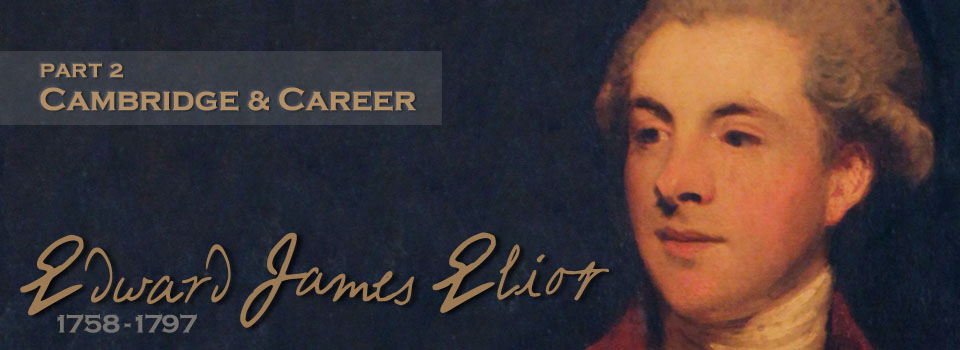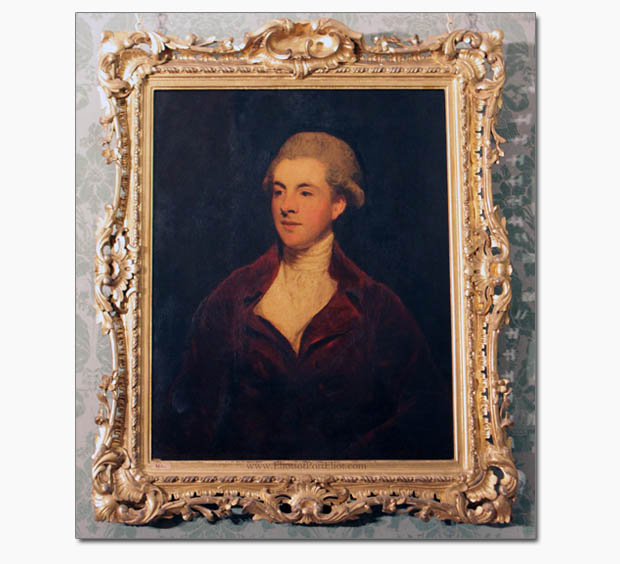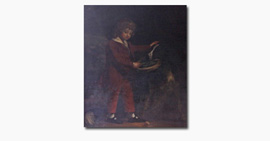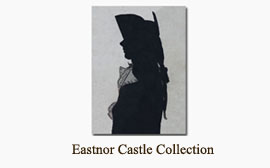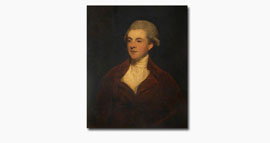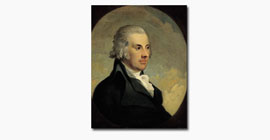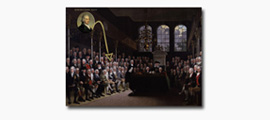Edward James Eliot: Cambridge and Career
In November 1775, shortly after his seventeenth birthday, Edward James entered Pembroke College, Cambridge — breaking, just for this generation, the Eliot tradition of attending Oxford. (His father had disliked Oxford and the wild behaviour taking place there in the 1740s, so Edward James and both of his brothers were sent to Cambridge.) The next five years were spent at school and proved pivotal to our hero's future career in politics, though not because of any ardent study on his part. A political career was assured to him, as heir of the Port Eliot estate, since there was no doubt that Edward James would sit in one of his father's parliamentary seats. Despite his father being a particularly powerful man in Cornwall, with great personal weight in his home county, the path and success of Edward James' career became more specifically rooted through friendships formed at Cambridge with budding politicians like William Wilberforce and the younger William Pitt. (His friendship with these two men never faltered — even after leaving university – which led to his later inclusion in both political and social reform.)
Edward James settled into Cambridge life very well, no doubt aided by the friendship of his uncle, John James Hamilton (later 1st Marquess of Abercorn), who was actually just two years older in age than his nephew and soon to graduate from Pembroke College himself. Hamilton wrote a letter to Port Eliot in March of 1776 saying, "Edward is doing well in university and is very popular in both the university and the surrounding areas . . . [with] the best balance of study and socializing possible." Young Edward James was even able to appreciate the Cambridge countryside, admitting to his uncle while out riding that the area was actually as pretty as Port Eliot. Quite a compliment indeed from an Eliot of Port Eliot!
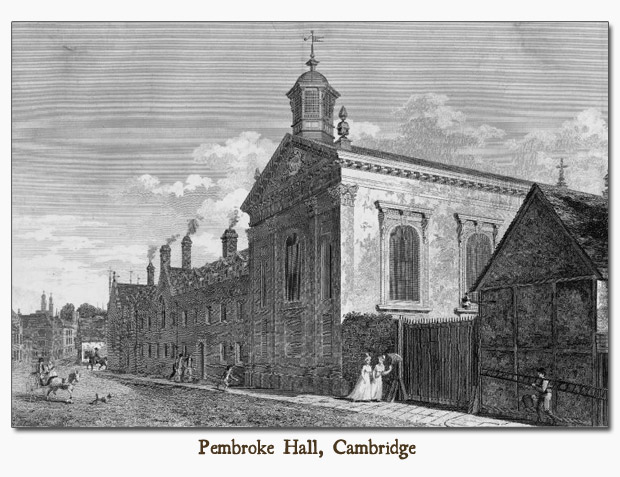
Edward James did not spend a lot of time at university during his final year. In November 1779, he had already been some time at Port Eliot and was soon to be in London to join with Pitt and some other friends. Not until July 1780, at the age of twenty-three, was Edward James awarded a Master of Arts. No matter how well balanced his socializing and studying had been (or whether he was a good scholar or a mediocre one), it did not really matter, because his degree was one issued "by Royal Mandate" at the Cambridge commencement that year. Within three months, he was elected as one of the two M.P.s for St. Germans, thus beginning his life in the political scene.
Edward James' first year-and-a-half in the House of Commons proved a rather quiet one for our young M.P., with only one newspaper report of his vote against the war in America in 1781. After that, however, things began to pick up speed. In May of the following year, contrary to his family's private interest, Edward James supported Pitt's motion on needed reforms to borough representation. The struggle for election and borough reform became one of his particular "causes", as he continued to draft and present numerous anti-bribery bills with Lord Mahon (who, though neither of them knew it at the time, would one day be Eliot's brother-in-law).
Edward James continued in his close friendship with Pitt and Wilberforce, in and out of the House of Commons. The trio often spent weekends together, dining, walking and even fishing on hot summer days. Pitt and his friends "took over" Goosetree's (or "Goostree's"), a small club at what is now No. 5 Pall Mall, where there were about twenty-five members in all, each one a personal friend of Pitt. It was here that they were able to escape the business of the day to relax in relative peace — all the while talking and planning political moves of one kind or another. It was about this time that Edward James sat for Sir Joshua Reynolds, the very close friend of his father. The result was a pleasing portrait of a handsome young man, in a red coat and powdered wig, with a gentle smile. His payment for fifty guineas was recorded in Reynolds' pocket book the following August, and the portrait still hangs on the wall at Port Eliot.
A brief advancement for our young hero was just around the corner, and, on July 13th of 1782, Edward James was one of five men appointed Commissioners (or Lords) of the Treasury (at the same time of Pitt's appointment as Chancellor of the Exchequer). The group held these positions for just nine months, at which time Pitt and his friends were stripped of their offices on the rise of the Fox-North coalition. The day of the young reformers had not quite arrived, and they were relegated for a brief time to the opposition benches, where they watched, waited and planned.
